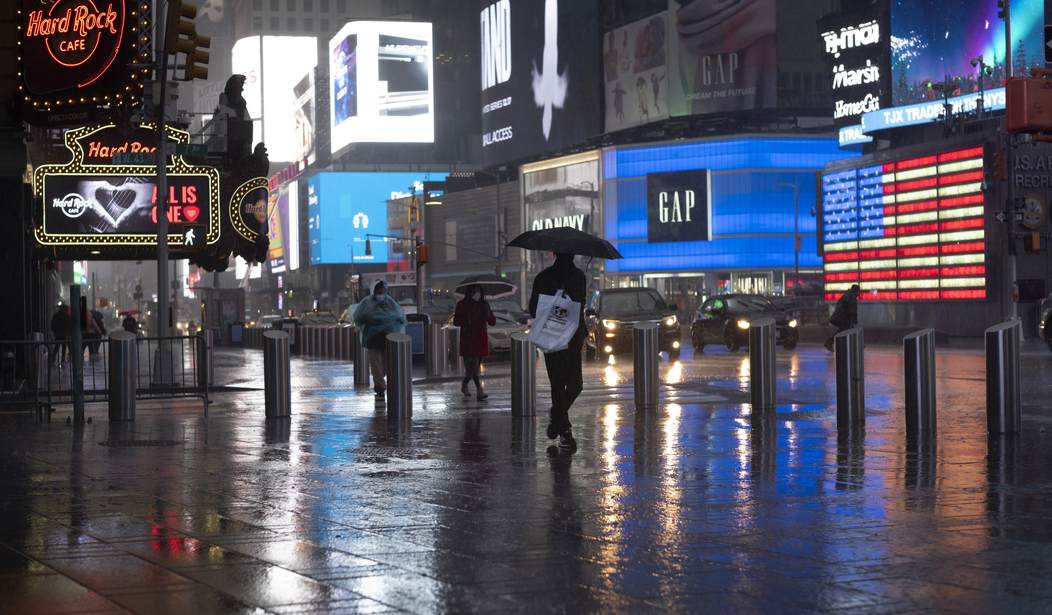Beginning September 1st, it will be a felony offense for legal gun owners who possess a valid concealed carry permit to bear arms in most public and private places in New York, thanks to anti-gun Gov. Kathy Hochul and her willing accomplices in the state legislature who rammed through sweeping new restrictions on the right to bear arms after the Supreme Court ruled that the state’s “may issue” laws were unconstitutional.
On Tuesday attorneys for Gun Owners of America and the New York Attorney General’s office squared off in federal court in Syracuse, New York during a hearing on the Second Amendment organization’s request for an injunction to prevent these new restrictions from being enforced.
Under the laws set to take effect next week it will be legally impossible for those with a concealed carry license to exercise their right to bear arms in many parts of the state, from rural forest land to the middle of Manhattan, which the plaintiffs argued goes far beyond what the Supreme Court laid out in the Bruen decision.
During a hearing in the case on Tuesday, a lawyer for the gun rights group told U.S. District Judge Glenn Suddaby that the Supreme Court meant for the “sensitive location” exception to apply only to a “narrow group of places.”
“You know, government building, schools. But it’s not all of these places. Like, Times Square — it can’t be a sensitive place,” attorney Stephen Stamboulieh said. “It could be that Times Square is sensitive at certain times. But not all the time.”
Defending the law was James Thompson, a lawyer with the New York State Attorney General’s Office, who argued that New York’s Concealed Carry Improvement Act is “deeply rooted in American history.”
He said the Supreme Court’s recent June decision in New York State Rifle and Pistol Association v. Bruen recognized that “protecting people from guns in vulnerable places” is “presumptively lawful.”
Not only are New York’s new “sensitive places” not deeply rooted in American history, they’re not even deeply rooted in New York law. Up until the Supreme Court issued its opinion striking down the state’s “may issue” laws it was perfectly legal for those who possessed a valid unrestricted carry permit to carry a concealed firearm in Times Square or on a New York City subway. It wasn’t until SCOTUS told New York that it could no longer prevent average citizens from exercising their Second Amendment right to bear arms that the state suddenly decided it needed to impose a gun ban on all private and most public property, which sure makes the state’s new laws look like an attempt to do an end run around Bruen rather than accept the fact that the right of the people to both keep and bear arms is real and of fundamental importance.
Justice Clarence Thomas had the foresight to know that New York might try to do something like this, and specifically warned against it in the majority opinion (citations omitted).
Consider, for example, Heller’s discussion of “longstanding” “laws forbidding the carrying of firearms in sensitive places such as schools and government buildings.” Although the historical record yields relatively few 18th- and 19th-century “sensitive places” where weapons were altogether prohibited—e.g., legislative assemblies, polling places, and courthouses—we are also aware of no disputes regarding the lawfulness of such prohibitions. We therefore can assume it settled that these locations were “sensitive places” where arms carrying could be prohibited consistent with the Second Amendment. And courts can use analogies to those historical regulations of “sensitive places” to determine that modern regulations prohibiting the carry of firearms in new and analogous sensitive places are constitutionally permissible.
Although we have no occasion to comprehensively define sensitive places” in this case, we do think respondents err in their attempt to characterize New York’s proper-cause requirement as a “sensitive-place” law. In their view, “sensitive places” where the government may lawfully disarm law-abiding citizens include all “places where people typically congregate and where law-enforcement and other public-safety professionals are presumptively available.” It is true that people sometimes congregate in “sensitive places,” and it is likewise true that law enforcement professionals are usually presumptively available in those locations. But expanding the category of “sensitive places” simply to all places of public congregation that are not isolated from law enforcement defines the category of “sensitive places” far too broadly. Respondents’ argument would in effect exempt cities from the Second Amendment and would eviscera, te the general right to publicly carry arms for self-defense that we discuss in detail below. Put simply, there is no historical basis for New York to effectively declare the island of Manhattan a “sensitive place” simply because it is crowded and protected generally by the New York City Police Department.
New York’s new and expansive list of “sensitive places” doesn’t just effectively declare most of Manhattan to be a “gun-free zone,” but most publicly accessible places across the entire state. Additionally, all private property are considered off-limits to lawful carry, though some private property owners are allowed to “opt-in” and welcome concealed carry as long as they post the required signage. Others, however, from restaurant owners to rabbis, are simply not allowed to decide for themselves whether or not they want to welcome those exercising their Second Amendment right to bear arms in self-defense.
In my opinion this shouldn’t be a difficult decision for the judge, but then again, we saw lower federal courts uphold New York’s “may issue” law before it was overturned by the Supreme Court, so who knows what kind of misreading of history might be employed in order to uphold the laws in question or at least allow them to be enforced while the litigation continues. I’m confident that in the long term many of these new restrictions are going to be struck down, but that doesn’t mean they won’t cause all kinds of problems for legal gun owners (including prosecution and prison time) in the meantime.








